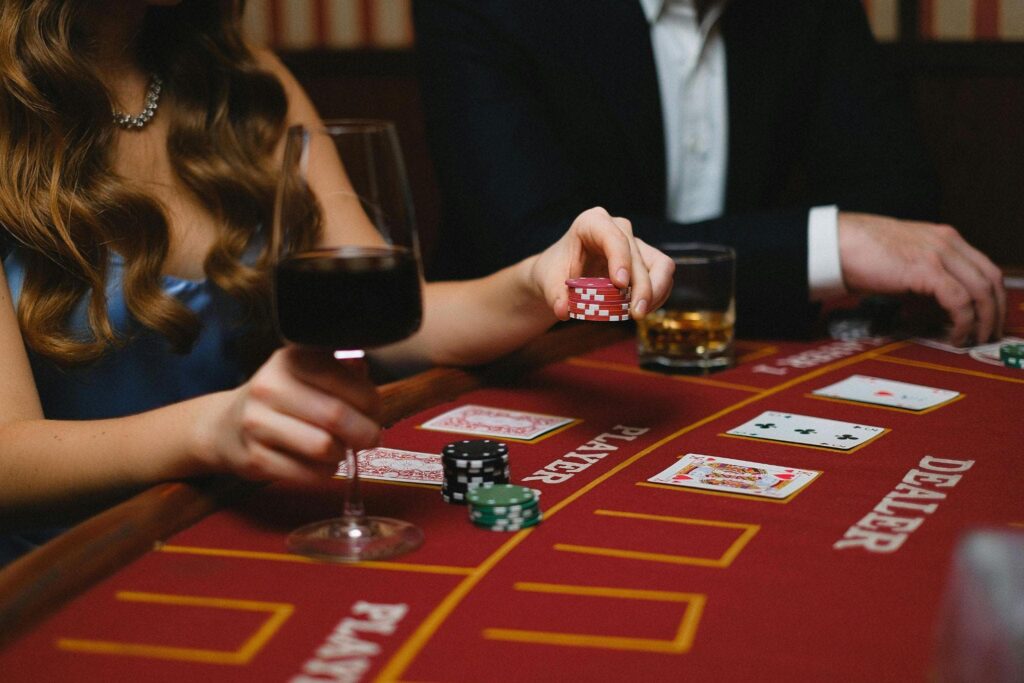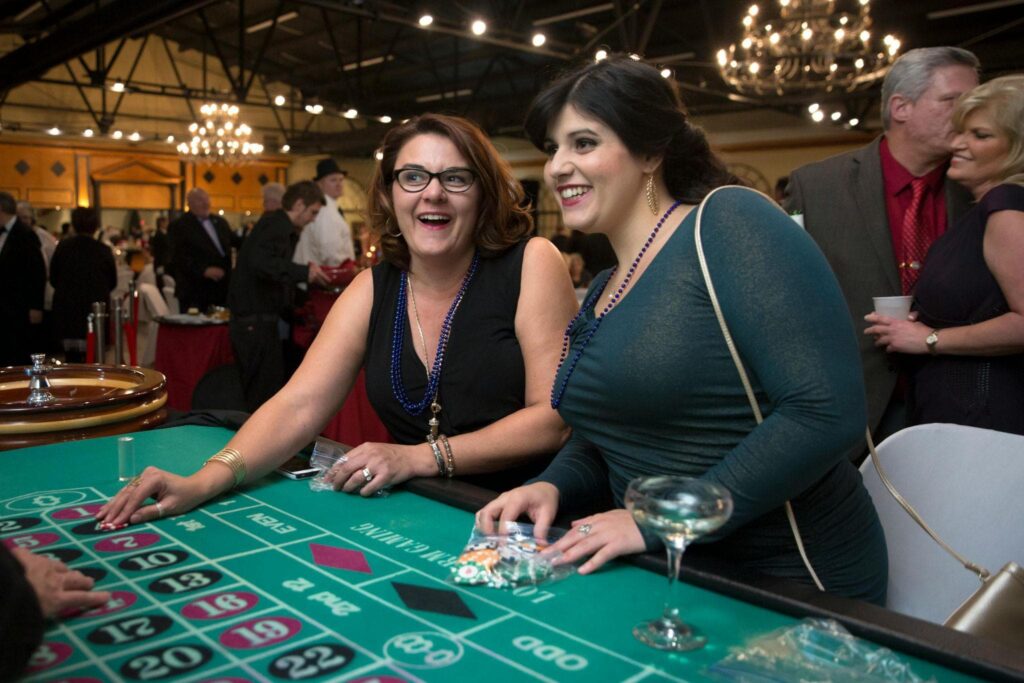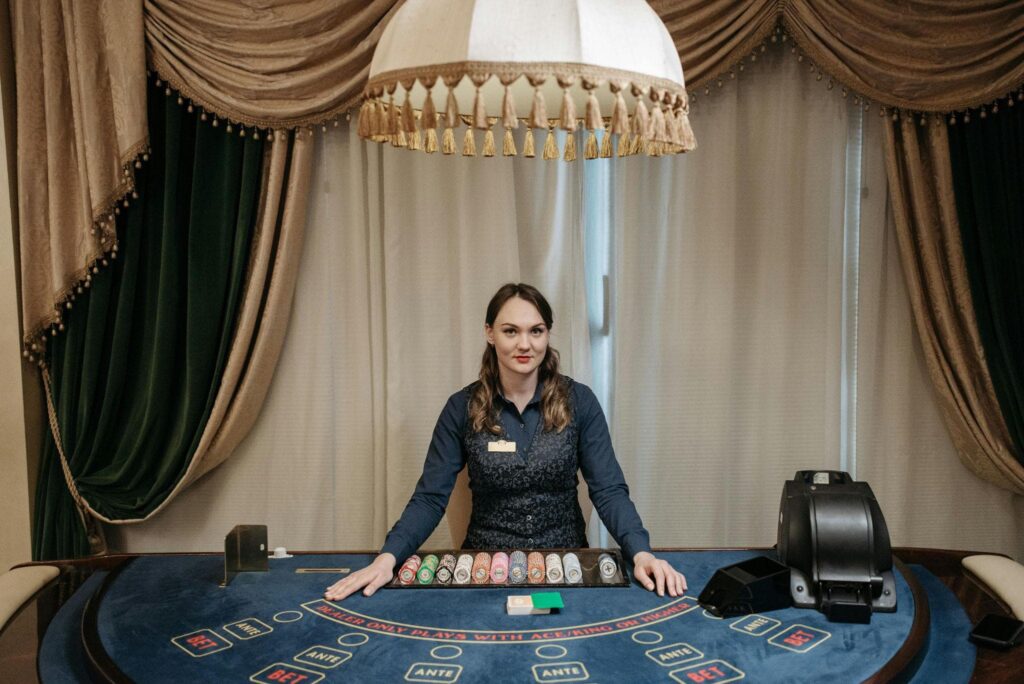When you step into the shimmering, electrifying world of a casino, you’re entering an environment designed for exhilaration, entertainment, and, yes, a touch of indulgence. For many, that indulgence might include one or two alcoholic beverages. It’s no secret that cocktails flow freely, often even complimentary, in these vibrant spaces. But here’s the rub: while a drink can enhance the fun, excessive consumption can quickly turn a night of excitement into one of regrettable decisions, not just for the individual but potentially for the establishment itself. This complex relationship between the thrill of the game and the allure of alcohol creates a unique challenge for casinos. That’s why promoting responsible drinking isn’t merely a nicety; it’s an absolute necessity. It’s about ensuring every patron enjoys a safe, memorable, and truly entertaining experience, safeguarding their well-being above all else. This commitment also shields the casino’s hard-earned reputation and ensures its long-term viability. Ultimately, it’s a dual responsibility: patrons must exercise self-awareness, but the establishment bears a significant duty to facilitate and encourage sensible choices. Even the best Arab casinos, renowned for their opulence and entertainment, recognize this vital balance.

The Imperative of Responsible Alcohol Service in Casinos
Now, why is responsible alcohol service so critically crucial for casinos? Well, beyond the obvious ethical considerations – because no reputable business wants to contribute to someone’s downfall – there are tangible legal liabilities and far-reaching negative impacts that stem from excessive drinking. Think about it: alcohol, in significant quantities, impairs judgment. In a gambling environment, where split-second decisions involving money are constantly being made, this impaired judgment can significantly increase the risk of problem gambling. Individuals might bet more than they can afford, chase losses more aggressively, or make irrational choices that they’d never contemplate while sober. Beyond the financial implications, there are immediate safety concerns. Intoxicated individuals are more prone to accidents, altercations, or becoming targets for theft. Nobody wants their night out to end with a trip to the emergency room or an unfortunate encounter. Society, too, has evolved, placing greater expectations and regulatory pressures on casinos. The days of “anything goes” are long gone; responsible corporate citizenship now demands proactive measures to promote safe drinking. Casinos aren’t just entertainment venues; they are integral parts of their communities, and with that comes a profound obligation to contribute positively to them.
Understanding the Risks and Challenges of Alcohol in a Gambling Setting
Let’s zero in on the specific risks that come with mixing alcohol and gambling. It’s a potent cocktail. Alcohol lowers inhibitions, often making us feel bolder, more confident, and less concerned about consequences. This can be disastrous when you’re making financial decisions. Impaired decision-making isn’t just about betting big; it’s about overlooking critical details, misinterpreting game dynamics, or failing to recognize when it’s time to walk away. Have you ever seen someone get argumentative or overly aggressive after a few too many? That’s another very real risk. Such behaviors can disrupt the atmosphere for other patrons and create uncomfortable or even dangerous situations for staff. But here’s the genuine challenge for casinos: how do you effectively monitor alcohol consumption while simultaneously maintaining that vibrant, high-energy atmosphere that draws people in? It’s a delicate dance. Overly zealous monitoring could make guests feel scrutinized and unwelcome, dampening the very excitement they came for. Finding that sweet spot where safety and fun coexist is the constant tightrope walk.

Core Pillars of Responsible Drinking Support
So, what are casinos doing to navigate this tricky terrain? It’s not just about lip service; it’s about implementing concrete strategies. These strategies form the core pillars of responsible drinking support, providing a framework for creating a safer, more enjoyable environment for everyone. From rigorous staff training to thoughtful policies and innovative partnerships, casinos continually evolve their approach to ensure that a good time doesn’t turn into a bad experience.
Staff Training Programs
The most fundamental pillar, and arguably the most impactful, is comprehensive training for casino staff. These aren’t just quick refreshers; we’re talking about in-depth explorations of programs like TIPS (Training for Intervention Procedures) or RSA (Responsible Service of Alcohol). The objectives are clear: equip every employee – from bartenders and servers to pit bosses and security personnel – with the knowledge and skills to identify signs of intoxication, understand their legal responsibilities, and, perhaps most crucially, politely but firmly refuse service when necessary. This isn’t always easy; confronting an intoxicated individual requires tact, patience, and unwavering confidence. Continuous education and regular refresher courses are vital because the signs of intoxication can be subtle, and the strategies for intervention need to be second nature. It’s about empowering staff to be the frontline guardians of responsible enjoyment, ensuring they can protect both the patron and the establishment with professionalism and empathy.
Implementing Alcohol Limits and Policies
Beyond training, casinos implement various policies and limits on alcohol service. This isn’t about being a buzzkill; it’s about creating a framework for moderation. This could involve limits on the number of complimentary drinks offered within a specific timeframe, shifting away from “bottomless” drink offers, or implementing responsible pricing strategies that encourage thoughtful consumption rather than rapid indulgence. You might also find policies regarding the serving of alcohol at specific times, particularly during late-night hours, or more stringent rules when dealing with visibly intoxicated individuals. The goal is always to strike a delicate balance: how do you ensure a positive customer experience – after all, a casino is an entertainment venue – while still upholding the highest standards of responsible service? It’s a nuanced approach that requires constant evaluation and adjustment.
Designated Driver Incentives and Transportation Alternatives
Casinos are increasingly recognizing that the party shouldn’t end with a perilous drive home. Promoting safe transportation options is a critical component of responsible drinking initiatives. Many establishments offer generous designated driver programs, understanding that a sober ride is the best last line of defense against impaired driving. These incentives can range from free non-alcoholic beverages and complimentary meal vouchers to loyalty points for the designated driver. It’s a small gesture that yields enormous safety benefits.
Furthermore, proactive partnerships with ride-sharing services, such as Uber, Lyft, or local taxi companies, are becoming increasingly commonplace. Imagine having easily accessible kiosks or information points where patrons can quickly arrange a safe ride home. These initiatives not only protect patrons but also significantly contribute to broader community safety, demonstrating a casino’s commitment that extends beyond its own four walls.
Real Examples and Best Practices from the Industry
It’s one thing to talk about responsible drinking; it’s another to see it in action. Across the globe, forward-thinking casinos are implementing these core pillars, providing concrete examples and successful initiatives that redefine the industry standard.
Case Studies in Staff Training Excellence
Some casinos have truly distinguished themselves with exemplary staff training programs. Take, for instance, certain major resort casinos in Las Vegas, which have invested heavily in customized responsible alcohol service training that goes beyond standard certifications. Their modules include realistic role-playing scenarios focused on de-escalation techniques and empathetic communication when refusing service. These training sessions are not one-time events; they’re frequent, with mandatory refresher courses held several times a year. The observed outcomes? There is a measurable reduction in alcohol-related incidents, fewer disturbances, and, surprisingly, improved customer service scores, as patrons appreciate the staff’s professionalism and care. When staff feel confident in their ability to handle challenging situations, it translates into a better experience for everyone.
Innovative Alcohol Service Policies
Innovation isn’t just for slot machines; it’s also revolutionizing the alcohol service industry. Some cutting-edge casinos are implementing intelligent monitoring systems that utilize discreet technology to help staff identify patterns of consumption that might indicate overindulgence. This isn’t about surveillance but about providing tools to support human judgment. Clear-cut procedures, communicated effectively, ensure that guests understand when service will be politely but firmly halted. Furthermore, there’s a growing trend towards responsible marketing of alcoholic beverages within the casino. Instead of promoting heavy drinking, advertisements highlight signature non-alcoholic cocktails or responsible consumption messages. These policies demonstrate that casinos can prioritize guest well-being without sacrificing the excitement of the gaming experience.
Successful Designated Driver and Safe Ride Programs
We’ve seen some truly effective designated driver and transportation programs in action. Consider the example of casinos that partner directly with local public transit authorities, offering discounted or free bus tokens to patrons who commit to not drinking. Or properties that have dedicated “Safe Ride Lounges” where designated drivers can relax with complimentary snacks and non-alcoholic beverages, creating a pleasant waiting area for them while their party finishes up. The incentives offered are varied, from significant discounts on meals to exclusive loyalty bonuses. Participation rates in these programs often soar, and the impact on community safety, particularly in reducing drunk driving incidents around casino vicinities, is undeniable. It’s a testament to the power of proactive planning to yield widespread positive results.

Technology and Responsible Drinking
In our increasingly digital world, technology isn’t just about enhancing gameplay; it’s also a powerful ally in promoting responsible drinking. Imagine the possibilities!
- Utilizing data analytics to identify patterns of excessive consumption. This isn’t about spying on individuals but about aggregated data. For example, systems could flag unusual patterns in drink orders per patron, allowing staff to check in on individuals before they become visibly intoxicated proactively.
- Implementing apps that allow patrons to set personal spending or drinking limits. Many responsible gaming apps already exist for monetary limits; extending this to alcohol consumption, where a patron could self-impose a “drink cap” for the night, offers a new layer of personal control.
- Digital signage promoting responsible drinking messages and designated driver options. Instead of a small, easily overlooked sign, imagine dynamic, engaging displays strategically placed throughout the casino, rotating messages about moderation, the availability of non-alcoholic options, and how to get a safe ride home.
- Integrating responsible gaming messages within casino management systems. This ensures that staff across all departments are reminded of the importance of responsible practices and can easily access relevant information.
Creating a Culture of Responsibility
Responsible drinking initiatives don’t thrive in a vacuum; they flourish within a casino that has genuinely embraced a culture of responsibility. This goes beyond policies and programs; it’s about a deeply ingrained ethos.
Leadership and Management Buy-In
A strong, unwavering commitment from leadership and management is non-negotiable. If the top brass isn’t entirely on board, responsible drinking initiatives will inevitably falter. When leaders visibly champion these efforts, it sends a clear message down the ranks: the well-being of patrons is a core priority, not just a regulatory hurdle. This top-down commitment influences employee behavior, encouraging them to prioritize interventions, adhere to policies, and contribute to an environment where safety and enjoyment are mutually beneficial. It shapes the entire casino ecosystem, ensuring that every decision, from marketing strategies to floor layout, subtly (or not so subtly) reinforces the message of moderation.
Communication and Awareness Campaigns
How do you get the message across without sounding preachy? That’s the art of effective communication and awareness campaigns. Clear, concise signage prominently displayed throughout the gaming floor, in restrooms, and near bars is a good start. Informational brochures, integrated into loyalty program welcome kits, can provide details on responsible drinking tips and resources. Some casinos now feature interactive, responsible gaming kiosks where patrons can test their knowledge or find information on local support services. Digital messages on casino screens, integrated seamlessly into the entertainment, can serve as gentle reminders. Beyond the property itself, public awareness campaigns, often in partnership with responsible drinking organizations, extend the message into the wider community, reinforcing the casino’s commitment to social responsibility. It’s about empowering patrons with information so they can make informed choices. When we talk about fostering this culture, it’s also crucial to mention the availability of problem gambling treatment resources and addiction support services, ensuring that those who need more than just a responsible drinking reminder have access to crucial help.
Partnerships and Community Engagement
No casino is an island, and responsible drinking is a shared community concern. Forward-thinking casinos actively seek collaborations with external organizations. This could involve partnering with local law enforcement to ensure safe traffic flow during peak hours, collaborating with health agencies to disseminate public health information, or working with responsible drinking advocacy groups to develop joint initiatives. Think about it: a casino that invests in its community by promoting safer drinking habits not only enhances its reputation but also contributes to a healthier, more vibrant local environment. These partnerships foster trust and demonstrate a genuine commitment to being a responsible corporate citizen.
Measuring Success and Continuous Improvement
So, how do casinos know if their efforts are making a difference? It’s not enough to implement programs; you have to measure their impact and be willing to adapt. This continuous feedback loop is crucial for genuine progress.
Key Performance Indicators (KPIs) for Responsible Drinking Initiatives
To honestly assess success, casinos need measurable metrics. These Key Performance Indicators (KPIs) can include:
- The number of staff interventions for visible intoxication.
- The reduction in alcohol-related incidents (e.g., disturbances, medical calls).
- Patron feedback on the effectiveness of responsible drinking programs.
- The number of patrons utilizing designated driver programs or alternative transportation.
- The frequency of staff training sessions and employee scores on responsible service knowledge tests.
By tracking these metrics, casinos gain valuable insights into what’s working and where adjustments are needed, ensuring that resources are allocated effectively.
Feedback Mechanisms and Patron Engagement
Gathering feedback from both patrons and staff is paramount. Simple methods, such as anonymous surveys, strategically placed suggestion boxes, and direct communication channels (e.g., a dedicated email address or phone line for responsible drinking feedback), can provide invaluable insights. When patrons feel heard, and staff feels empowered to contribute ideas, it fosters a sense of collective ownership over responsible drinking initiatives. This engagement ensures that programs remain relevant, effective, and responsive to real-world experiences within the casino environment.
Adapting to Evolving Challenges and Regulations
The landscape of responsible drinking isn’t static. New research emerges, societal norms shift, and regulatory frameworks evolve. Casinos must remain agile, ready to adapt their practices in response to these changes. This may involve adjusting alcohol service policies following new public health guidelines, incorporating cutting-edge technology as it becomes available, or proactively engaging with lawmakers to inform the development of responsible gambling and drinking legislation. The commitment to responsible drinking is an ongoing journey, not a destination, requiring constant vigilance and a willingness to innovate.
Conclusion
The journey of a casino striving to support responsible drinking is a fascinating and profoundly important one. We’ve explored the intricate relationship between gaming and alcohol, the ethical imperatives, and the very real risks involved. From meticulously trained staff who act as the first line of defense to innovative policies that gently guide patrons toward moderation and even the strategic use of technology to enhance safety – every facet plays a crucial role. The emphasis on fostering a deep-seated culture of responsibility, driven by strong leadership and amplified by clear communication and community partnerships, transforms a mere venue into a truly responsible entertainment hub.
Measuring success through tangible KPIs and fostering open feedback loops ensures that these initiatives aren’t just theoretical but deliver real, measurable improvements. And as the world continues to evolve, casinos must remain adaptable, always ready to embrace new challenges and regulations. The benefits are undeniable: for patrons, it means a safer, more enjoyable, and truly memorable experience. For casinos, it solidifies their reputation, ensures long-term sustainability, and reinforces their commitment to being a positive force in their communities. The pursuit of responsible drinking isn’t just good business; it’s simply the right thing to do, ensuring that the vibrant energy of casinos, including the most celebrated like the best Arab casinos, remains a source of pure, unadulterated enjoyment for everyone.




